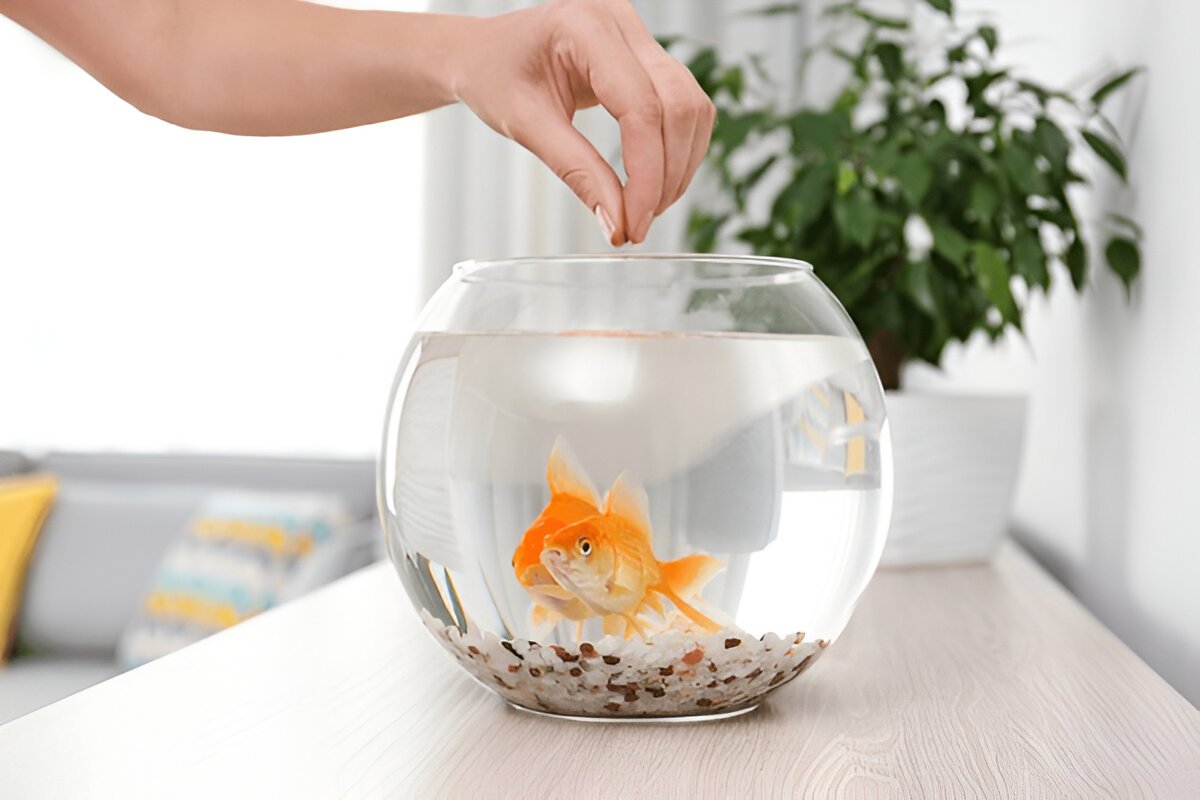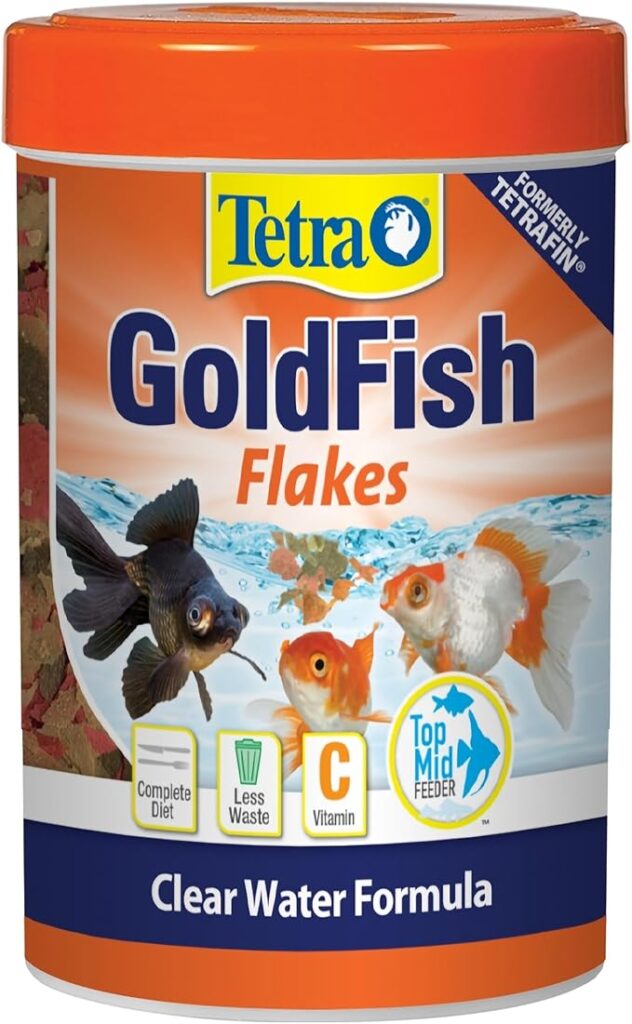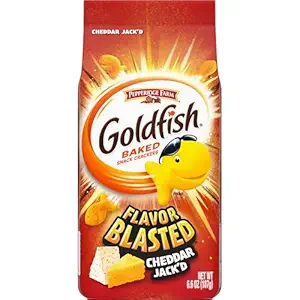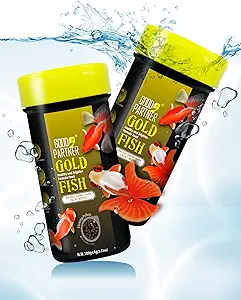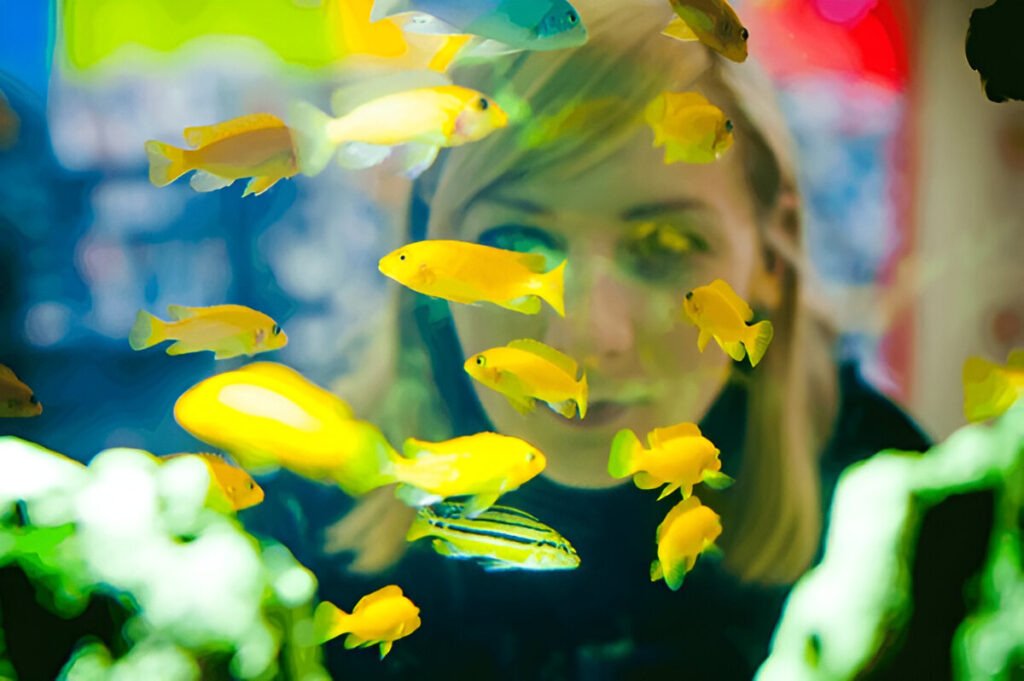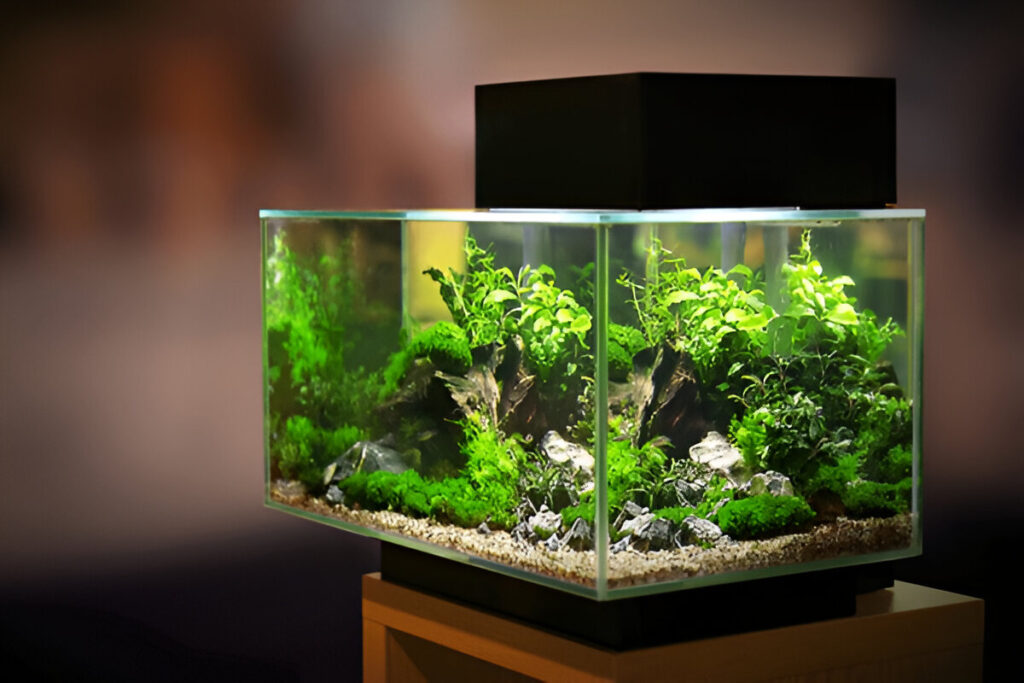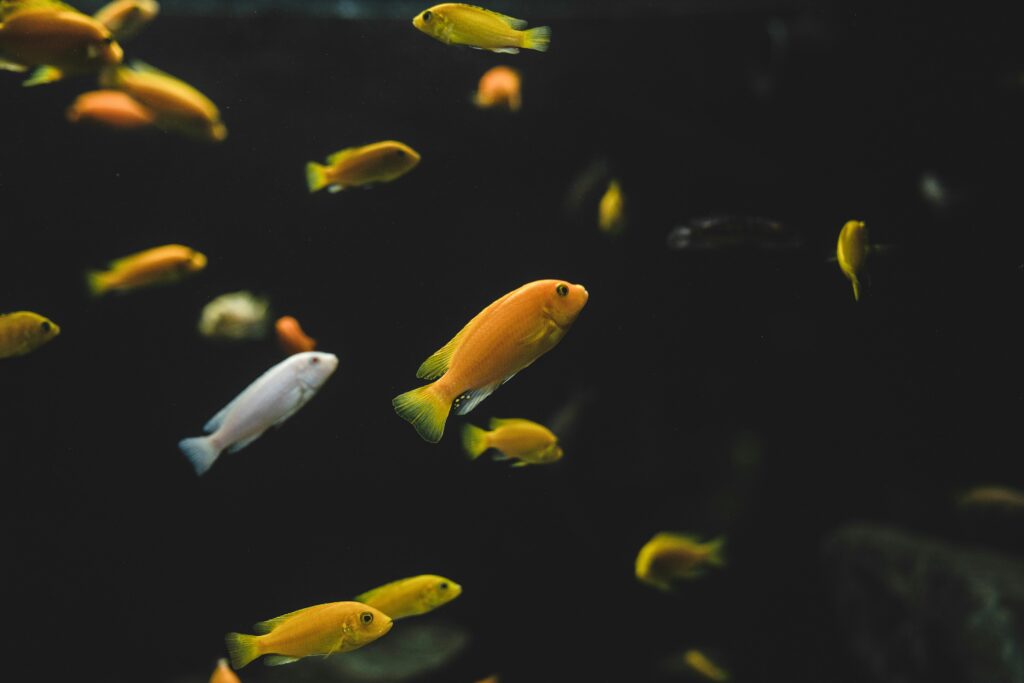What Do Goldfish Eat? A Complete Guide to Their Diet
Introduction
Goldfish are popular pets known for their vibrant colors and playful nature. However, many owners often wonder, what do goldfish eat? Providing the right diet is essential for their health, longevity, and coloration.
In this guide, we’ll explore the best foods for goldfish, their dietary needs, and feeding tips to keep them thriving.
Goldfish Diet: Understanding Their Nutritional Needs
Goldfish are omnivores-they consume a diet of plant and animal material. To enjoy the best level of health, their diet has to be well-balanced. A varied diet will provide nutritionally balanced feeding that includes growth, energy, and resistance against diseases. Their nutritional requirements have been outlined in the following lists:
Proteins – Protein is necessary for the growth of your goldfish, the development of its muscles, and the repair of tissues. Younger, growing goldfish need more protein than adult fish. Good sources of high-quality proteins include insect larvae, bloodworms, daphnia, brine shrimp, and commercial goldfish pellets or flakes that contain fish meal or spirulina.
Too much protein can lead to excessive growth in adult goldfish and may cause health problems, so it should be provided in moderation.
Carbohydrates – Though carbohydrates are a major energy source, they must be provided in moderation. Goldfish have a hard time digesting too many carbohydrates, and this may cause bloating or problems with the swim bladder. Bread and processed grains, being starchy foods, are not good for them and may cause digestive problems.
Natural sources of carbohydrates, like blanched peas, lettuce, spinach, zucchini, and other leafy vegetables, are beneficial for goldfish.
Fats – Fats provide concentrated energy to the fish and fuel metabolic functions necessary for life. Omega-3 and Omega-6 fatty acids are considered essential and key to a fish’s scale, fin health, and all-around cellular function.
Healthy fats can be given through high-quality fish food but also through particular live or frozen foods like krill and shrimp. Too much fat should not be given in excess to prevent obesity and many other health adversities.
Vitamins & Minerals: Vitamins and minerals are essentially needed for maintaining immune function, bone health, and metabolic balance. For example, vitamin C strengthens the immune system of fish and keeps them away from diseases. Calcium and phosphorus help the goldfish develop bones and fins.
These will generally be provided in commercial goldfish food, but supplementation can be done with fresh vegetables like cucumbers, carrots, and algae wafers. Variety in the diet will help avoid deficiencies that may lead to common problems such as fin rot or weakened immunity.
Fiber – Is very important for digestion and will help prevent constipation as well as maintain good gut health. Foods high in fiber include blanched peas, lettuce, or most fibrous aquatic plants such as duckweed or anacharis. This helps to keep bowels running smoothly and also prevents disorders of the swim bladder. Overfeeding low fiber foods will cause bloating, especially the dry pellet type foods that have not been pre-soaked.
Additional Feeding Considerations:
Days of Fasting: Fasting once a week or so could help regulate the digestion process in case of a tendency toward bloating, to which fancy goldfish breeds may be more vulnerable.
Portion Control: Goldfish have a tendency to overeat, so feeding small portions multiple times a day is preferable to a single large feeding. A general guideline is to provide only as much food as they can consume within 2-3 minutes.
Live vs. Processed Foods: While live and frozen foods are great nutrition, they should be used more as a supplement rather than the main course of diet to avoid the introduction of parasites or bacteria into the aquarium.
Food Quality: Using high-quality, commercially prepared goldfish food which is nutritionally formulated for their needs will provide them with all types of nutrients. Avoid the use of general fish food because it does not contain a proper nutrient balance.
Best Food for Goldfish
1. Commercial Goldfish Food
Commercially available goldfish food is made specifically to address their dietary requirements. The two major types include:
- Pellets – Nutritious and balanced, these are available in both floating and sinking forms.
- Flakes – Good to be provided to small-sized goldfish but they tend to lose their nutrients fast if kept in water for a long time.
2. Live and Frozen Foods
Live and frozen foods increase the nutritional value of a goldfish’s diet and are used as a source of enrichment. Some common and nutritious ones are as follows:
- Brine Shrimp – Great for growth and high in protein.
- Daphnia (Water Fleas) – Good for digestion and gut.
- Bloodworms – Rich in protein and goldfish just love them.
- Tubifex Worms – Should be used sparingly as they can contain parasites.
3. Vegetables and Plant-Based Foods
Goldfish also benefit from a variety of plant-based foods, which mimic their natural diet:
- Blanched Peas – Helps prevent constipation and swim bladder issues.
- Spinach & Lettuce – Rich in vitamins and easy to digest.
- Zucchini & Cucumber – Soft and nutritious when sliced thin.
- Algae & Spirulina – Supports vibrant coloration and immune health.
4. Homemade Goldfish Food
For a more natural approach, some owners prepare homemade goldfish food:
Blend vegetables, fish, shrimp, and gelatin in a blender to make nutrient-rich gel foods.
Avoid seasoning or spices or anything with high amounts of fat.
What to Avoid Feeding Goldfish
Goldfish have sensitive digestive systems, and feeding them the wrong foods can lead to serious health problems. To keep your goldfish happy and healthy, avoid the following:
- Bread & Pasta: These are quite harmless-looking food, but the fact is these foods expand within a goldfish’s stomach that can result in bloating and constipation as well as various problems of swim bladder. Their gluten content cannot be digested easily, potentially causing chronic and long-term internal digestive disorders, while yeast additives in bread negatively affect the bacterial flora in intestines.
- Meat & Dairy Products: Goldfish are omnivorous, but their intestines are designed for neither fatty nor rich protein foods like beef, chicken, cheese, or milk. These will cause impaction, quickly pollute the water with resultant bacterial growth, and create poor water quality. Use proteins more suited to goldfish, such as bloodworms, brine shrimp, or pellets specifically formulated for fish.
- Processed Human Food: Chips, crackers, sweet snacks, and salty foods contain artificial preservatives, colorings, and excessive amounts of sodium-all toxic to goldfish. These can cause organ damage and stress, making fish more prone to disease. Natural foods only are best for them, as far as nutrition is concerned.
- Hard Vegetables: Raw carrots, potatoes, etc. can be very healthy for goldfish; however, since these vegetables are hard, the fish has a hard time chewing and digesting them, which could potentially choke or block digestive paths in your pet. You may feed vegetables, but they must be soft either from steaming or blanching. Some vegetables to try would include cooked peas-no skin on peas-or even zucchini and spinach.
Other Foods to Avoid
Besides the ones mentioned, avoid giving them the following:
- Citrus Fruits – Oranges, Lemons, etc. High acidity will upset their stomach and change the pH balance in the water.
- Onions & Garlic These contain toxic properties which poison your fish.
- Raw Meats & Fish They might harbor harmful bacteria and parasites that will infect your goldfish.
How Often Should You Feed Your Goldfish?
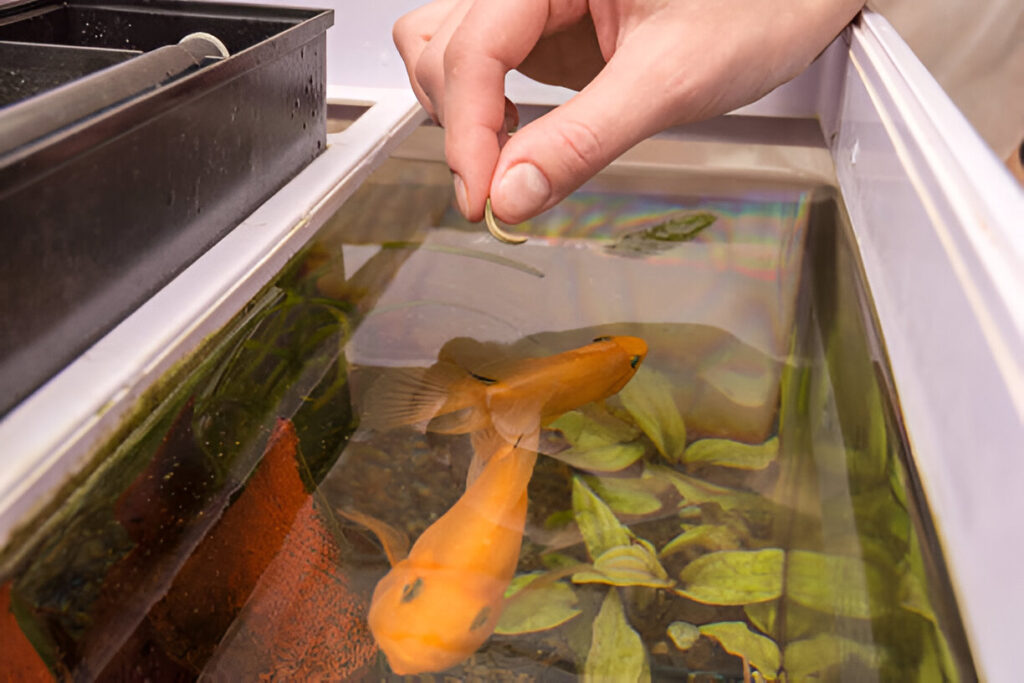
Being a small but energetic creature, taking care of food intake is always an important way to ensure one’s health, especially for your goldfish. Overfeeding generally leads to such health issues in goldfish: obesity, digestive problems, poor water quality. Here are several ways to do so to guarantee the healthiness of your pet goldfish, and they have been listed herein:
- Feed small portions of food 2-3 times per day. Since goldfish have relatively small stomachs, giving small meals quite frequently is ideal. Actually, this is for a reason: to feed them adequately but not to overload their stomachs.
- Only offer what they can consume in 2 minutes.
Though goldfish may be fast eaters, you must make sure that they do not eat too much. You can give a little amount of food and monitor your fish. Stop giving food the moment they are not eating anymore. In fact, a good rule of thumb is to feed them what they can eat in 2-3 minutes. - Uneaten food must be removed instantly.
Any food not eaten will rot and foul the water, developing unhealthy bacteria and poor conditions for your fish. Clean the tank regularly by removing leftovers in time. - Implement occasional fasting.
Once or twice a week, withhold food from the fish for an entire 24-hour period. Fasting will give their systems a rest from constantly processing, and prevent overfeeding. That is good not only for health but also because it maintains decent water quality around them.
Characteristics of Healthy, Properly Fed Goldfish
Your properly fed goldfish should show:
- Colorful Color
The bright, vibrant colors of the goldfish are one sign of healthiness. A healthy goldfish retains its natural hues, whereas poor dieting or health may lead to dullness or fading. - Strong Swimming:
Other primary signs of a healthy and well-fed goldfish are active swimming. If the goldfish is much sluggish, or it starts swimming erratically or has trouble staying upright, that could mean it is overfeeding or having any other problem with its health. - Shiny Eyes & Smooth Scales:
A healthy goldfish will also have bright, clear eyes and smooth, even scales. Any swelling, cloudiness, or sores can be an indication of sickness or poor quality of water. - Healthy Appetite:
A goldfish that has a good appetite will never say no to an offer of food. But if it starts refusing food or after eating shows signs of bloating or floating, there can be an issue with its health or its dietary imbalance.
Please Choose
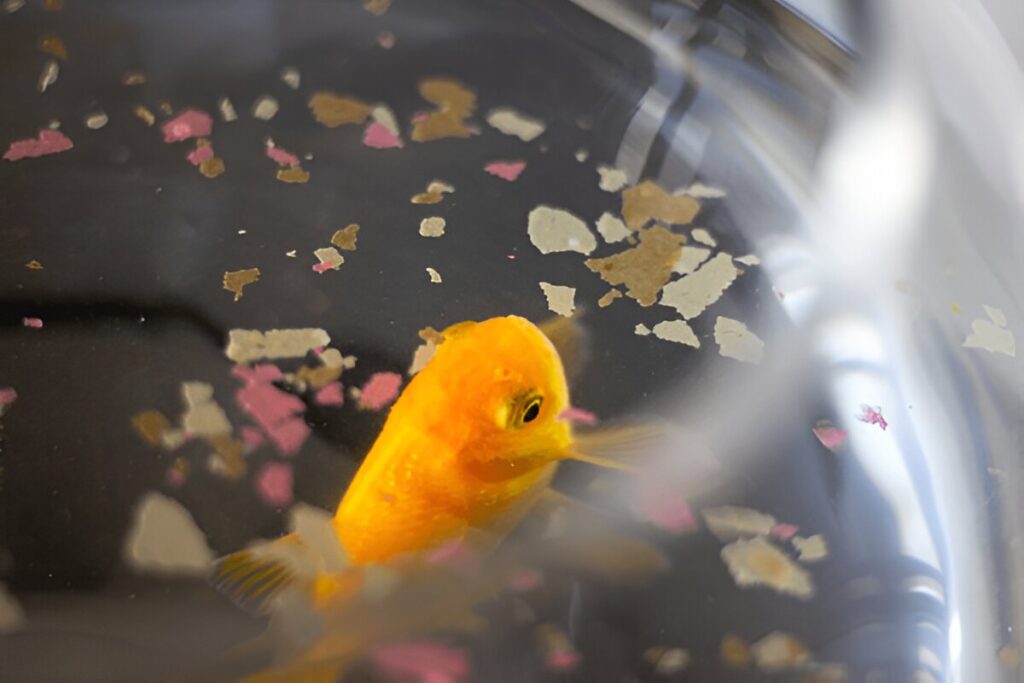
Common Mistakes When Feeding Goldfish
Even experienced fish-keeping parents make mistakes in the feeding of goldfish. Following are some of the common mistakes to be avoided while feeding:
- Overfeeding:
- The Problem: The most common mistake made while feeding is overfeeding. When goldfish are fed excessively, they can develop obesity, poor digestion, and lethargy. The excess food deteriorates the quality of the water, causing harmful spikes in ammonia and nitrites.
- Solution: Follow the “two-minute rule” and adjust feeding amounts based on your goldfish’s size and activity level. Always remove excess food.
- Underfeeding:
- The Problem: Underfed goldfish can suffer from malnutrition, which weakens their immune system and makes them more susceptible to diseases. Malnourished goldfish may also show signs of sluggishness, poor growth, or reduced activity.
- Solution: Give them enough food to sustain their nutritional needs. If you’re unsure, ask an expert or your local pet store how much food your breed of fish requires at whatever age they are.
- Feeding Poor-Quality Food:
- The Problem: Most low-quality fish food does not contain the required nutrients, vitamins, or minerals that goldfish need to stay healthy. Feeding them with poor-quality food can lead to stunted growth, weakened immunity, and even diseases.
- Solution: Invest in quality food designed for goldfish. Look for options that include a balanced mix of protein, vegetables, and omega-3 fatty acids, and avoid foods with fillers or artificial colorants.
- Inconsistent Diet:
- The Problem: Relying solely on one food type-be it pellets, flakes, or live food-limits the nutritional variety of the diet your goldfish is getting. A lack of variety can lead to nutrient deficiencies and overall poor health.
- Solution: Vary your goldfish’s diet. Besides their general pellets or flakes, supplement them with vegetables, such as peas or spinach, live or frozen foods, such as brine shrimp, and special foods that are nutritionally complete for goldfish.
- Water Quality Ignored:
- The Problem: Overfeeding can leave your tank filled with food debris that decomposes and fouls the water. Your goldfish are going to be stressed and very susceptible to diseases due to poor water quality.
- Solution: Good water quality can be achieved by regularly changing the water, an active filtration system, and clean-up of left-over food. This helps their environment stay free from toxins that might harm them.
- Feeding Inconsistent Schedules:
- The Problem: Irregular feeding of goldfish, such as at any time or without a schedule, is a stress factor and confuses them. They are routine animals and will benefit from regularity in feeding.
Feed your goldfish at the same time each day to enable them to build some predictable pattern when feeding. In this way, you can assess their consumption properly and avoid giving them too little or too much food.
Conclusion
The right diet is very important for the health and longevity of your goldfish. A combination of commercial food, live/frozen proteins, and plant-based options will provide a balanced nutrition. Avoid overfeeding, monitor their eating habits, and introduce variety for optimal well-being.
What do you feed your goldfish? Share with us in the comment section below your experiences and tips.
Yuns Legdm is a passionate advocate for pet care and the founder of this website, dedicated to providing valuable information for fellow pet lovers and veterinary professionals worldwide. With a deep love for animals, Yuns created this platform to connect passionate pet owners with expert insights from veterinarians around the globe.
This website grows with you—the passionate pet owners and veterinary experts—creating a trusted space where knowledge, experience, and love for animals come together. Whether you’re seeking advice on pet health, nutrition, or general well-being, this platform is here to support you on your journey of responsible and loving pet care.

